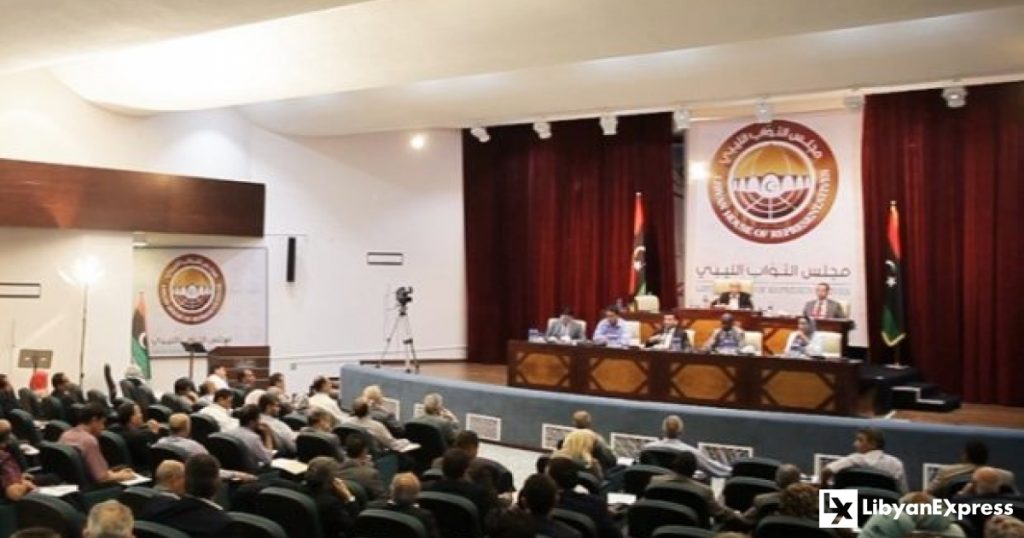Tripoli_ In a major step forward leading to holding much talked about general elections on schedule, the Libyan House of Representatives has issued the Presidential Elections Law on Thursday 8 September.
The Law was referred to the High National Electoral Commission (HNEC). And a copy of the Law was sent to the Special Envoy of the Secretary-General for Libya, and Head of the United Nations Support Mission in Libya (UNSMIL), Ján Kubiš.
This important development will pave the way to hold the presidential and parliamentary elections on 24 December 2021 and as a result could bring an end to an almost a decade of lack of strong central government in Libya.
Stressing the importance of this measure, UN Special Envoy Ján Kubiš told a meeting of Arab League’s Foreign Ministers on 9 September that he was informed by the parliament speaker that “the presidential electoral law was already adopted as law No.1/2021, while the parliamentary elections can be organized on the basis on the existing law with possible amendments that could be considered and approved within the coming two weeks.”
Kubiš urged Arab League members and regional organizations to send observation teams, in coordination with Libyan authorities and institutions, notably HNEC, and the Ministry of Foreign Affairs to observe the electoral process.
Some groups and political forces have rejected the new law as being unconstitutional while others welcomed it as the right decision on the part of the parliament in order to fulfill the Un Security Council resolutions and the recommendations of the Berlin I and II in this regard.
The head of the High Council of State Khaled al-Mishri expressed his opposition to the new law in a statement issued on Thursday on the basis that the Parliament acted unilaterally and did not consult them. The statement said that it may refer the case to the Supreme Court.
Muhammed Rashid, MP who is affiliated with Muslim Brotherhood, said we were surprised to learn that the speaker of the parliament had referred the election law to HNEC. “So referring it is a procedure that violates the parliament’s internal regulations and all parliamentary legal norms,” he said.
Abdul Razzaq Al-Aradi, a leader of the MB and a member of the Political Dialogue Forum, said in a tweet that “the law on electing the head of state signed by the Speaker of the Libyan House of Representatives will not pass.”
On the other hand, a number of political leaders supported the adoption of the presidential law and said it is a step in the right direction. Former Interior Minister and influential person among Misurata militias, Fathi Bashagha, welcomed the law and called all local and international parties to facilitate the elections process on time.
Ahmed Maiteeg, a businessman and former Deputy President of the Presidential Council of the GNA, said in a tweet on Friday that “the law to elect the president directly by the people is a positive step that pushes towards the establishment of a stable political and economic environment, as well as pushes towards the unification of divided institutions. We call on all Libyan parties to support it.
Another 25 national parties and movements described the issuance of the election law as a “historic achievement,” saluting all the efforts made by Libyan society and its political organs.
The law, which was circulated in the media, came in 77 articles, specifying the competencies, tasks and conditions that must be met by the candidate for the upcoming presidential elections, the voter, and the mechanism for electing the president.
According to Article 10, a candidate for the position of head of state (he or she) is required to be a Libyan Muslim of Libyan Muslim parents, not to hold the citizenship of another country when he is nominated, not to be married to a non-Libyan, and not to be less than forty years old.
The presidential candidate shall have at least a university degree or its equivalent from an accredited institution. He/she must be enjoying full civil rights and have not been convicted in the court of law of a felony or other crimes.
The candidate is also required to be medically fit to exercise the functions of the presidency, and to submit a declaration of his immovable and movable property for him, his wife and minor children inside and outside Libya, and he must not be an employee of the HNEC or any of its affiliated institutions.
Article 11 stipulates that a candidate must submit a recommendation from at least 5,000 voters registered in the voter database. Article 5 states that a candidate is considered a winner if he obtains 50% + 1 of the total number of votes, but in the event that none of the candidates obtains this percentage, those who obtain the two largest number of votes participate in a second round of voting.
